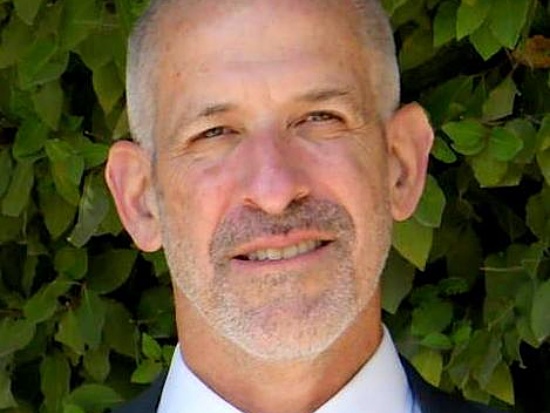Ronen Bar’s Dismissal Is Legally Valid, Arguments to The Contrary Are Political

Ronen Bar, fired director of the Shin Bet. Photo: Spokesperson unit of the President of Israel
3/28/2025, 6:13:58 PM
The decision by the Israeli Cabinet to fire Shin Bet head Ronen Bar is a proper decision as Bar himself admits to a massive error in judgment that led to the disaster of Oct. 7. Bar admits to having received alerts including Hamas changing their cellphone sim cards and other preparations by members of the terror group in the hours before the attack began, yet, he did not notify Israeli Prime Minister Benjamin Netanyahu or Defense Minister Yoav Gallant.
In light of this, Bar should have resigned. However, he has refused to do so. That led to a unanimous vote of the Israeli Cabinet in favor of his firing in accordance with Section 3(c) of Israeli law, which allows for the dismissal of the head of the Shin Bet, as it says, “The government is authorized to terminate the tenure of the head of the agency before the end of his term.”
The law was drafted and passed with the understanding that the government could decide, for any reason, to end the tenure of the head of the Shin Bet. In this case, the disaster of Oct. 7 is about as strong a reason as one could have for his dismissal.
It is ironic that those who call for Netanyahu to resign because of the catastrophe of Oct. 7 are the same people who have opposed the demands for Bar to resign. This shows that the call for Netanyahu’s resignation has nothing to do with Oct. 7 and everything to do with his politics.
There is a logical grouping of people who should resign because of Oct. 7, some of whom have already done so. Among the latter are Israel Defense Forces Chief of Staff Lt. Gen. (res.) Herzi Halevy, who recently admitted that he did not think Hamas was capable of doing 5% of what they did on Oct. 7; IDF Southern Command head Maj. Gen. Yaron Finkelman; and IDF Intelligence Directorate head Maj. Gen. Aharon Haliva.
Shin Bet head Bar, who communicated with Halevy in the hours before the attack, should follow suit and resign, as should those in the IDF who refused to listen, and even scolded, the female IDF soldiers who expressed their concerns that Hamas was preparing for an attack.
Bar is not an elected official, and the law in Israel gives the prime minister and the cabinet the power to replace him. Netanyahu made a mistake when he made Bar a part of the team negotiating for the release of hostages. Just recently, Bar made public a letter he wrote saying that Netanyahu should make more concessions to Hamas to try and obtain the hostages’ release. He also credits himself for the negotiations that led to the recent release of hostages.
The fact is that the Biden administration did not credit Bar. Rather, it noted Israel’s military successes against Hamas, such as the killing of its leader Yahya Sinwar, its crushing of Hezbollah and its attacks on Iran, as leading to the recent hostage deal. Bar may be furious that he is no longer involved in hostage negotiations, but he has no business disagreeing publicly with the policies of the elected government of Israel while serving the head of the Shin Bet. Bar can privately express his views, but the public expression of his disagreement with the government alone is grounds for his dismissal.
I worked at the Israeli Supreme Court as a volunteer law clerk for Deputy President Justice Menachem Elon in the summer of 1988. At the time, the Israeli Supreme Court was held in extraordinarily high regard by Israeli society, and, back then, it had never held unconstitutional any Knesset decision or Cabinet decision.
Now, however, the Israeli Supreme Court has enjoined the Cabinet’s decision to remove Bar despite clear language in the law that gives the Israeli government the power to make that decision. A hearing on the ruling is scheduled for April 8, the same date the Bar’s removal is set to go into effect. Former Supreme Court Chief Justice Aharon Barak, the leftist architect of the court who began to invalidate Knesset laws, has publicly said he would block the government’s decision to replace Bar.
The fundamental foundation of a democracy is the rule of law. That foundation is undermined when the government exercises its power to remove someone from their post as allowed under the law, and the attorney general blocks that decision. The Israeli democracy is further eroded by the Israeli Supreme Court’s enjoining of the government’s decision, which will not allow it to put in a replacement for Bar.
Israel is at war, and the Israeli government needs to have a Shin Bet leader with good judgment, which Bar failed to show on Oct. 7, 2023.
Some cite the fact that the Shin Bet opened an investigation into monies received by two of Netanyahu’s aides from representatives of Qatar as proof that Bar should not be dismissed. However, Bar’s dismissal will not end that investigation, as it is being done by the attorney general’s office. Further, there is no evidence that the prime minister was aware of the payments or even changed any of his policies, which have been highly critical of Qatar throughout the conflict and its relationship with Hamas.
Those on the left who claim that Israel’s democracy is being threatened by Bar’s removal are the ones who are undermining the democratic rule of law. Their opposition has nothing to do with the law and democracy, and everything to do with keeping Bar and his left-wing views in a position of power. A democracy needs to function according to the law, and if the Israeli Supreme Court fails to allow the government of Israel to replace Bar, then it is the court that will be undermining Israeli democracy.